While literary tastes are subjective, some books transcend time and language to become universally beloved (or at least, universally read). These are the novels that become part of our collective conscious, shaping the way we understand the world.
Some of these books are among the most popular books of all time; some are perennial favorites on high school reading lists; some are popular bucket list books; some were banned when they were first published. But they're all worth reading.
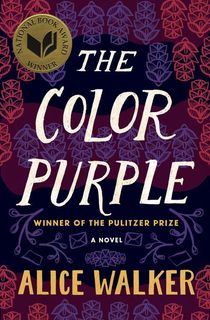
The Color Purple
Only a handful of books have managed to win both the Pulitzer Prize and a National Book Award—that should give you a sense of how much this book has resonated with readers. The Color Purple is written from the point of view of Celie, a young black woman living in the early 1900s. Though she suffers horrible abuse, Celie somehow perseveres.
The Color Purple has since been adapted into an Academy Award-nominated movie and a musical, but the story is still most powerful in its original form.
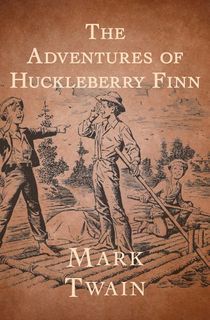
The Adventures of Huckleberry Finn
Mark Twain is known as the "father of American literature," and anyone who's read his work can see why. Twain's prose is simple yet mesmerizing, and his storytelling abilities are still unparalleled more than a century later.
The Adventures of Huckleberry Finn has the distinction of being both one of the most banned books of all time and one of the top contenders for the Great American Novel.

One Hundred Years of Solitude
This novel was written by a winner of the Nobel Prize, is one of the most famous examples of magical realism, and has been listed by Joan Didion as one of the books that changed her life.
Though some readers complain the story is a little hard to follow (admittedly, there are many, many members of the Buendía family to keep track of), this fantastical story is more than worth the effort.
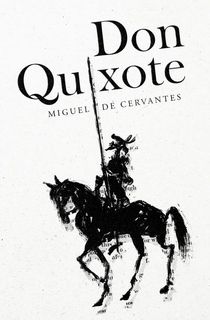
Don Quixote
If you don't know what it means to tilt at windmills, then you owe it to yourself to cross Don Quixote off your reading bucket list. This 17th century treasure follows a nobleman who has lost his mind and proceeds to have insane adventures in the name of chivalry.
Though its age and length (about 1000 pages) make the novel feel a bit intimidating, trust us—there's a reason it's one of the most popular books of all time.

Charlotte's Web
If you somehow made it through childhood without reading Charlotte's Web—or if you did, but no longer remember it—stop what you're doing and pick up a copy of this book. A regular essayist for the New Yorker and the co-author of The Elements of Style, a guide that will likely never leave syllabi for college writing courses, no one writes like E.B. White.
Few authors have been able to match his talent for telling a children's story in a tone that's equally compelling to adults—and we'd argue that no one has pulled it off with the same amount of whimsy or charm.

Things Fall Apart
History is (usually) written by the victors—but every once in a while, a novel like Things Fall Apart breaks through and lets us see the past from another angle. Set in the late 1800s, this historical fiction novel is told from the point of view of Igbo, an African villager who is helpless to stop the colonization of his culture by British forces.
According to Toni Morrison, “African literature is incomplete and unthinkable without the works of Chinua Achebe.”

The City and the Pillar
One of the first openly queer writers of the 20th century, Gore Vidal was known for his impeccable style and wit. This landmark novel in gay literature takes place in the first half of the century, and follows Jim, a man who struggles to accept his own attraction to men.
Jim travels around the country and has affairs with men in New York, New Orleans and Hollywood—but cannot bring himself to openly live as a gay man in WWII-era America.
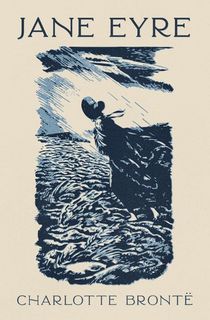
Jane Eyre
Often credited as the first feminist novel, this classic book about a plain, principled governess has captivated readers since it was published in 1847. After a childhood of neglect, Jane falls in love with her employer, Mr. Rochester—but when she find out he's been keeping a distressing secret from her, she must choose between her happiness and her morals.
Featuring a twist that's still shocking more than 150 years later (if you don't know what it is, we won't spoil it for you), this exceedingly well-crafted novel also inspired Daphne du Maurier's Rebecca and Jean Rhys' Wide Sargasso Sea.

The God of Small Things
Widely considered a modern classic, Arundhati Roy’s Man Booker Prize–winning book is set in 1960s India. The family saga and political drama opens with the funeral of a young girl, the cousin of protagonists and fraternal twins Estha and Rahel.
At just seven years old, the twins observe the tense interactions of adults with a wide-eyed innocence. Meanwhile, the political upheaval in 1969 Kerala, India—where Communism clashes with the caste system—reaches new heights.
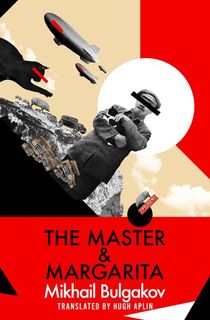
The Master & Margarita
An example of both Russian literature and fantasy, The Master & Margarita is a twisting, dark comedy that explores good and evil, intellectualism, and love. Satan arrives in 1930s Moscow, and immediately predicts the death of the atheist leader of a literary group before going on to wreak havoc around the city.
This story is intertwined with the relationship between the Master, who was committed to a psychiatric hospital after finishing his novel about Pontius Pilate and Jesus, and his lover, Margarita.
Keep Reading
10 Cool Books That Belong on Your Bookshelf
8 Popular Authors Who Deserve Their Fame
Featured photo: Blaz Photo / Unsplash





